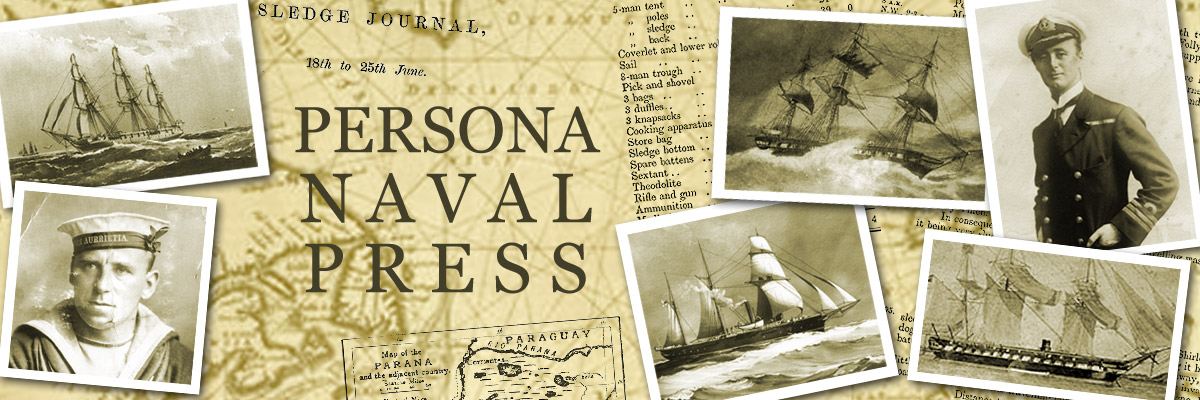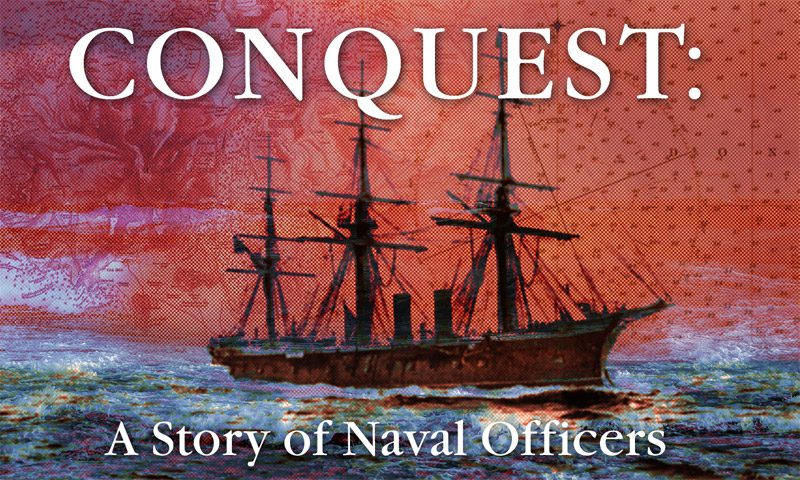Part 4 – Command
Chapter 2 – Quarantine
The first part of the year, which had started out well, ended badly. General Scratchley caught a fever from his assistant and died. On the return to Sydney twenty of the crew went down with this mysterious fever which the doctor could not identify as its symptoms were so various. Food started to run out. They had only one sheep left and a few fowl. Ephraim didn’t mind salt meat, but he wanted to eat. He hoped next year would provide for better victualling.
No sooner had they arrived at Sydney than they had to put out a bush fire which destroyed Admiralty Headquarters on Garden Island.
‘If it had burned there would have been little loss,’ said Fraser. ‘Can’t wait to get into the House when I can. I would have words with the First Lord! Glad I took this posting just to see what is going on out here; leaky ships and not enough of them, not enough food, either. The Captain thinks we are just left to ourselves! He is getting fed up already. Look at what is going on. Look at the shambolic state of our ships – no wonder, we’re going into Cockatoo for dry docking and caulking, leaks everywhere, repairs will be expensive and take time. Lord, wish I were First Lord. We need more naval chaps like Berryford in the House.’
‘I fear for the men,’ said Ephraim ‘It’s not just a New Guinea fever, there are men who have joined the ship since, and they have it now.’
‘I bet this is a Sydney production – the Cockatoo dock has terrible drainage and poor water supply. Typhoid in Sydney, and who knows what else elsewhere? I blame the colonial government, I’ll be glad to get away from the place.’
Ephraim did not know who to blame. It was the injustice of the fever that worried him.
‘It seems fine to die for one’s country, Pro Patria Mori, but to die because of going to a different part of the world and leaving life with a ghastly disease that produces no heroic medal or even promotion, seems total injustia. Horace would have disapproved.’
‘Can’t get promoted when you’re dead!’
‘No, but I mean you should get the benefit from the sacrifice and suffering, if you live. If you sacrifice yourself by getting severely wounded shooting other people, you get a Victoria Cross. No one gives you a medal or financial advantage. Life in the Navy is ontologically unfair.’
‘I seem to remember you thought that, when you joined, justicia ominibus and all that. But you still came back!’
‘Well, I haven’t given up on the ontological justice of God!’ Ephraim thought of the drawing now pinned in his cabin – a child’s sailing ship with wobbly carefully written capitals underneath – FATHER SAILING AWAY… Well, he would sail back soon and right that injustice himself!
It was time for the spring voyage to Hobart. More men were going down with the mysterious fever and they had to sail through the Bass straits with the weather even worse than usual.
’22 men are now sick,’ said Ferguson, ‘If we don’t get quiet, two of the men won’t make it.’ He urged the Captain to put into Spring Bay. Turner knew the problems that a delay would produce and was reluctant to hold up the voyage. Ephraim observed the scar over Ferguson’s eye redden in anger,
‘For God’s sake, Turner, it’s typhoid. Can’t we put into Spring Bay to save them?’
‘You realise we might not get pratique if we put in to Spring Bay with fever and then go into Hobart. We might be quarantined on Brunt Island. We might get more fever than ever shut up there.’
‘With this howling gale we might not get anywhere!’
Reluctantly Turner gave orders, ‘Very well. Tell the men it’s Spring Bay, Browne,’ and Ferguson left with alacrity.
Masham looked after the doctor, ‘I wouldn’t like to do Ferguson’s work. But at least the poor devils are dying and he won’t have to amputate.’
Turner looked disgusted. He was also disgusted later when entering Hobart for Spring Bay because the Tasmanian Governor, George Mahan, would not give Peerless pratique. He insisted on the sick men being quarantined on Brunt Island while the ship remained off shore.
‘Ridiculous! We only have two typhoid cases and there is already typhoid in Hobart. A lot of cowardly creatures, there must be as much chance of catching typhoid as a broken leg!’ the Captain grumbled to his first Lieutenant.
‘Take a party of officers Browne, and go and oversee the place tomorrow.’
The building of weather boarding and corrugated iron was sound enough, but the officers found the sick quarters reprehensible,
‘There is nothing here,’ said Ephraim looking at the bare iron bunks, ‘Not a scrap of furniture of any sort, a nice place to put the sick!’
‘There are over thirty of them now, wretchedly week and ill, Ferguson says.’
‘They’ll have to sleep on the floor. Damned cold for the poor fellows!’ Masham shivered.
‘I’ll get the Captain to send over some sails,’ said Ephraim, ‘And the men will make the best of it as they always do.’
Pots of paint were found, and Turner routed out an old carpenter’s bench for a dining table and sent over two of his precious canvas chairs. Sub Lt Stollman turned out his own canvas chair, ‘And that’s all the sit-upons they have,’ he rarely remarked.
A steamer was supposed to have arrived with provisions, but nothing happened, ‘I suppose having got us away at Hobart they don’t care what happens now.’ A caretaker and his wife arrived late, having run away initially because they saw the warship and thought it was smallpox. Captain Turner found the whole thing increasingly intolerable. He telegraphed the Governor in fury,
‘I must forage for myself if they don’t attend to us.’ His protests brought some bedsteads, a visit from the health officer, a steamer loaded with provisions and the arrival of a large number of livestock, fowls, ducks, geese, etc.
The invalids began to revive, and the fever abated under the better circumstances. An informal air of relaxation overtook them. There were picnics and fishing and games on the island. Since there was little work to do on the ship with so few men left aboard, a certain Forest of Arden idyll ensued. Captain Turner walked round chatting to the patients, collecting mushrooms and mussels for the invalids while the able men sat around picnicking, fishing, gathering mussels and setting up a concert. Ephraim set up an athletic sports programme in the hospital clearing. The exercise and competition did wonders for morale. Sub Lt Stollman could even be seen talking to Able Seamen Forbes and Brendan.
At last the sick men, even the weakest of them, were ready to be re-boarded. One final delay to be endured. The Captain and Ephraim went down to see the quarantine buildings were left in a good state.
‘Nice and clean,’ pronounced the Captain, ‘Much better than when we came in and a thousand times better with those beds in them. A good job Browne, well done,’ and he turned to see the tiny little boat coming up from Oyster Bay, bearing the long-awaited pratique.
Captain Turner’s general relief was short lived. He returned to Sydney to hear all about the shindig being create in public, press and Parliament by the rumours of the actions of Peerless in the islands in the last year, and now there were articles in the local press. He wrote to his wife, ‘The Western Morning News says I have devastated and laid waste six of the fairest islands in the Pacific, which is beautiful talking, quite equal to the shrieks of the Daily Telegraph or Pall Mall’. He shared his anger with his First Lieutenant,
‘Can you believe it?’ He waved the newspaper in front of Ephraim, ‘Dr Cimeron has taken the question up in the House of Commons, ‘Is it true villages were shelled and burned, nets and canoes destroyed and coconut plantations laid to waste’. What rubbish! What exaggeration! And now the First Lord is saying he cannot comment until he gets an Inquiry! I don’t care what the Admiralty and Government say, so long as the Admiral is satisfied,’ and he banged the paper down and went off to his cabin.
Admiral Lyon was supportive, ‘I will back you up in everything, although there may have been one or two small things I might not have agreed with.’ Turner was mollified. He was also pleased by a report in the Times,
‘Bit of butter, here Browne, ‘Admiral Lyon and the officers of his squadron have behaved with discretion and humanity’,’ he was less pleased when the Admiral supplied his latest orders.
‘Now we have to go to Samoa and Fiji, and I expect it will be the same thing all over again, patrolling, annexing, surveying, catching more murderers, dealing with arms traders, and now sorting out the Germans and making sure each ship sails under the right flag. I’m ready to go home.’
Ephraim thought it was all getting rather interesting and hopeful. Things seemed better organised here than in the Niger and the Congo, where Colonial government under British jurisdiction offered the possibility of a global British Empire founded on the supremacy and integrity of its Royal Navy; producing a moral and practical benefit for all its members, and dare he think it, a position for himself within it to activate, despite its difficulties, the moral imperative – justicia omnibus. He would give the matter more thought.
He was watching Fraser in the wardroom going through some papers arrived in his post. He looked anxious and was frowning.
‘Something wrong there Fraser?’ asked Ephraim.
‘Damn slack…my agent has omitted to pay a half years interest on my Coutts account.’
Fraser was worried, his account had been badly managed, and he could not rely on other funds for support. He dare not ask his father who had disapproved of his activity with the bank in Bahia.
The arduous work of patrolling the islands continued as the varying interests and activities of the Empire demanded the attention of Peerless and her crew. It was some years before Captain Turner could go home. But things changed quickly for Ephraim.

